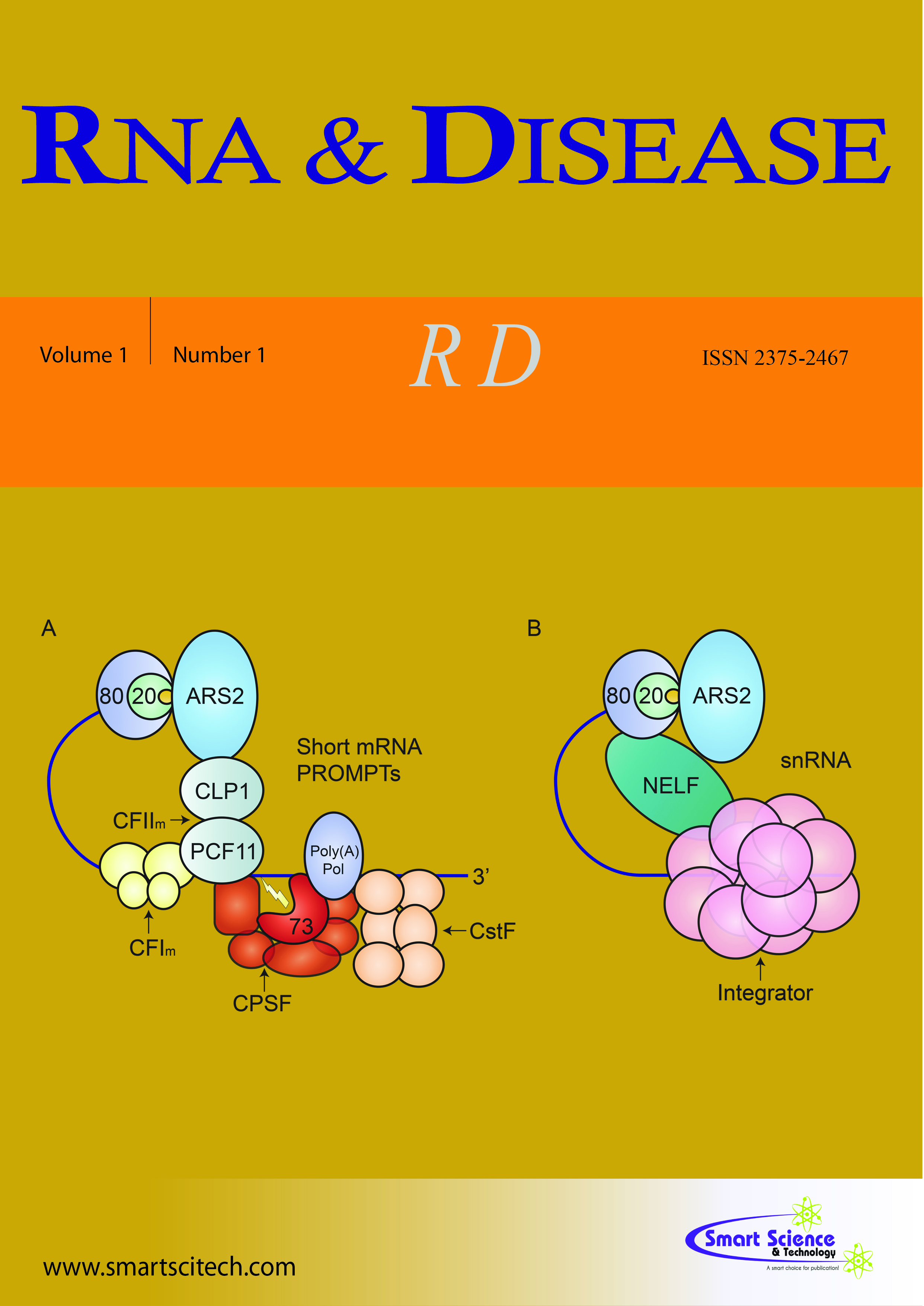KRAS Cold Turkey: Using microRNAs to target KRAS-addicted cancer
DOI: 10.14800/rd.539
Abstract
Human cancers are driven by genetic mutations which cause aberrant activation of pro-growth pathways. Although cancers are uniquely dependent on the pro-growth signaling from oncogenic pathways, efforts to directly target these have been largely unsuccessful. One of the most common and drug resistant oncogenic drivers in colon cancer is the GTPase KRAS. It has been shown that colon cancers with KRAS driver mutations are also ‘addicted’ to proteins outside of the KRAS pathway due to aberrant re-wiring of cell signaling.. A number of genes with a synthetic lethal relationship to mutant KRAS have been previously identified by RNAi screens. MicroRNAs (miRNAs) are important post-transcriptional regulators of gene expression, and their expression is frequently dysregulated in cancers. Recently, we have used an innovative functional miRNA screening approach to identify miRNAs that inhibit the survival of KRAS-mutant cells but not KRAS-wild-type cells. MiR-126 was one of the miRNAs that displayed this selective effect. We found that miR-126 induced synthetic lethality in KRAS-Mutant cells via the down-regulation of the polo-like kinase signaling network and a number of genes specifically necessary for the growth of KRAS-Mutant tumors. This study offers a new way forward for exploiting the regulatory power of miRNAs to specifically target aberrant cell signaling in cancer.












